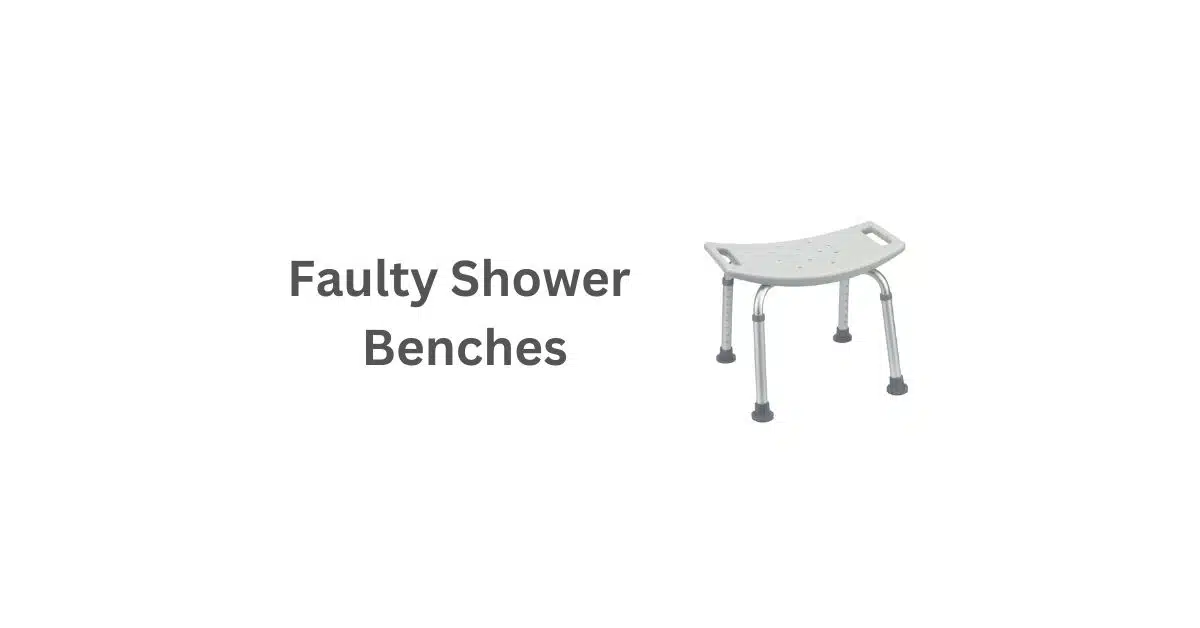
Understanding Product Liability and Steps to Take After an Injury
Blog Personal InjuryInjuries caused by defective products can lead to significant physical, emotional, and financial burdens. Understanding your consumer rights and the legal actions you can take is crucial when faced with injuries caused by a defective product. In Texas, the civil code stipulates that consumers have rights if injured because of a defective product. This article will provide an overview of product liability and the steps to take if you are injured by a defective product.
What is Product Liability?
Product liability refers to the legal responsibility manufacturers, distributors, suppliers, and retailers have for the safety of the products they produce or sell. When a product is defective or dangerous and causes injury or damage, the responsible parties can be held accountable.
Three main types of product defects could lead to liability:
- Design Defects: These are inherent flaws in the product design that make it unsafe, even if manufactured correctly. For example, a car with a tendency to flip during sharp turns due to design errors would fall under this category.
- Manufacturing Defects: These occur during the production or assembly process, making an otherwise safe product dangerous. An example would be a bicycle with a faulty brake system due to improper assembly.
- Marketing Defects (also known as “failure to warn”): This involves improper labeling, inadequate safety warnings, or insufficient instructions on how to use the product safely. For instance, if a prescription drug fails to include adequate warnings about potential side effects, it could lead to serious harm.
Who Can Be Held Liable?
Liability can extend to various entities involved in bringing the product to market, including:
- Manufacturers: This includes the company that designed and produced the product.
- Suppliers: Any business involved in the distribution or sale of the product.
- Retailers: Even though they may not be directly involved in making the product, retailers can be held liable if they sold a defective item.
What to Do if You’re Injured by a Defective Product
If you are injured by a defective product, taking the right steps can significantly affect the outcome of your claim. Here’s what you should do:
- Seek Medical Attention: Your health and safety should be the priority. Even if your injuries seem minor, get a thorough medical evaluation. Medical records are essential evidence in product liability cases.
- Preserve the Product: If possible, keep the defective product in the condition it was in at the time of the accident. Do not attempt to repair or alter it, as this can interfere with evidence and affect your case.
- Document the Incident: Take photographs of the product, the injuries sustained, and the environment where the injury occurred. Keep detailed notes of how the injury happened, including the date, time, and any witnesses present.
- Retain All Related Documents: Keep any packaging, manuals, receipts, or warranties related to the product. These documents can help establish the chain of distribution and prove ownership.
- Contact a Lawyer: Product liability cases can be complex, involving multiple parties and significant resources. It’s best to consult with an attorney who specializes in product liability law to understand your rights and options.
Types of Product Liability Claims
There are several legal theories under which a product liability claim can be pursued:
- Negligence: This occurs when a party involved in designing, manufacturing, or selling the product fails to exercise reasonable care, resulting in a defective product.
- Strict Liability: In strict liability cases, the injured party does not need to prove negligence. It is enough to show that the product was defective and caused the injury, regardless of the manufacturer’s care level.
- Breach of Warranty: When a product fails to meet the terms of its warranty (either expressed or implied), and this failure leads to injury, the consumer may have a valid claim.
Compensation You May Be Entitled To
If you successfully prove that a defective product caused your injury, you may be entitled to compensation for:
- Medical Expenses: Covering both immediate and long-term medical care related to the injury.
- Lost Wages: Reimbursement for time missed at work due to the injury.
- Pain and Suffering: Compensation for physical pain and emotional distress caused by the accident.
- Property Damage: Any damage caused to your property as a result of the defective product.
Product liability law exists to protect consumers from unsafe products and hold companies accountable for their mistakes. If you or a loved one is injured by a defective product, taking prompt and appropriate action can significantly improve your chances of obtaining compensation for your injuries.
To learn more about your rights or to seek professional help, consider reaching out to a lawyer specializing in product liability.



